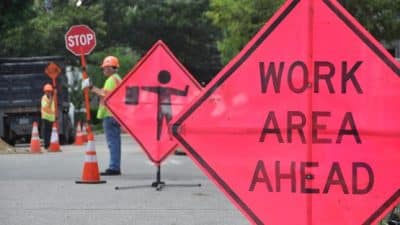
Inflation is rising at its highest rate in more than a decade and is now impacting most, if not all primary consumer items, according to Virginia Tech economist Mike Ellerbrock.
Ellerbrock, a professor of environmental and natural resource economics in the Department of Agricultural & Applied Economics, shared these thoughts on what this means for today’s consumers and the economy.
What do the numbers tell us about the overall rate of inflation in 2021?
Since 2011, inflation has been low at about 1.5 percent, until this year when it is expected to rise above 4%, and then moderate to around 2% in 2022 after seasonal adjustments.
Is there reason for the average consumer to be concerned about what’s going on with prices?
Yes – because the current increases are mainly in food, shelter, and fuel – primary consumer items, which can exacerbate the situation if shoppers panic and accelerate their purchases. Expectations are influential drivers of consumer behavior. The multi-trillion-dollar Trump and Biden stimulus programs aimed at infrastructure job creation simultaneously raise fears of inflation and excessive government borrowing.
There seems to be a variety of opinions on what causes prices to escalate. What’s your take?
After hibernating for 18 months, consumers are anxious to return to normal patterns of spending. In response to the pandemic, the U.S. labor force is undergoing an historic transition:
- Even with signing bonuses, 50 percent of small companies can’t find enough willing workers for minimum wages.
- Laid off workers are increasingly reluctant to return to work without higher wages and better benefits, driving wages up 3.6 percent in recent months.
- Many day care centers and after-school programs are under-staffed and not fully open.
- High paid professional workers have decided they prefer to work remotely or they will retire early.
- Temporary unemployment benefits are apparently not the main cause of the labor shortage.
- We are seeing an unprecedented cultural shift in what workers want, i.e., more fulfilling jobs/careers, more family time, better health, safer working conditions, better work/life balance.
We are witnessing a classic “Wage/Price Spiral” where rising wages and prices chase each other … chicken & egg effect.
Is there a connection between supply chain issues and inflation?
Yes – ports, warehouses, and trucking lines are seriously under-staffed. Rising fuel costs hamper operations and delivery schedules.
As an economist, what do you feel is most important for consumers to know about inflation?
- It’s not a bad idea to refrain from luxury purchases for a while.
- Watch the benchmark interest rates set by the Federal Reserve to moderate inflation. They have been near zero for an extended period, which ironically diminishes the Fed’s ability to use ever-lower interest rates to stimulate the economy. The Fed may increase interest rates a bit in the near future to calm inflationary fears among borrowers, lenders, and investors.
- Regarding the debt ceiling debate, if Congress reneges on paying our national debts, it will send global economic shock waves that reduce America’s credit rating and the international value of the dollar, putting our financial markets in turmoil and consumers in jeopardy.










